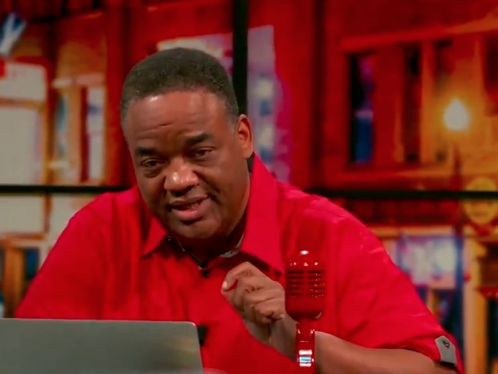Travis Kelce’s recent comments on Harrison Butker’s controversial stance on motherhood have not only navigated the media landscape with tact but have also ignited a fiery critique from journalist Jason Whitlock. In his response, Kelce adopted a diplomatic approach, neither fully endorsing nor outright criticizing Butker’s views. This nuanced stance, however, was met with criticism from Whitlock, who in his latest YouTube video, labeled Kelce a “knucklehead” and challenged his self-awareness.

Whitlock expressed dissatisfaction with Kelce’s attempt to maintain neutrality, suggesting that the tight end’s success was merely a product of his physical attributes rather than any substantial intellectual or skill-based contributions. He accused Kelce of being influenced by social media pressures, asserting that Kelce’s responses are shaped more by public perception than by genuine personal conviction.

The heart of the controversy stems from Kelce’s handling of Butker’s remarks, which were made during a graduation ceremony where Butker described a woman’s “most important title” as “homemaker.” Kelce pointed out that Butker’s views were not his own, yet he avoided condemning them outright. This approach, according to Whitlock, represented a pandering attempt to please all sides, ultimately stripping the statement of authentic significance.

In contrast, Jason Kelce, Travis’s brother, offered a more straightforward response to Butker’s comments. He chose to highlight the positive aspects of Butker’s speech, particularly the importance of mothers in family development, while acknowledging that not all of Butker’s points resonated with him.
This scenario highlights a broader dialogue about the impact of public figures’ responses to controversial issues and the challenges they face in balancing personal beliefs with public expectations. Whitlock’s critique underscores a critical view of how athletes like Travis Kelce manage their public personas in the increasingly scrutinous realm of social media and public discourse.





